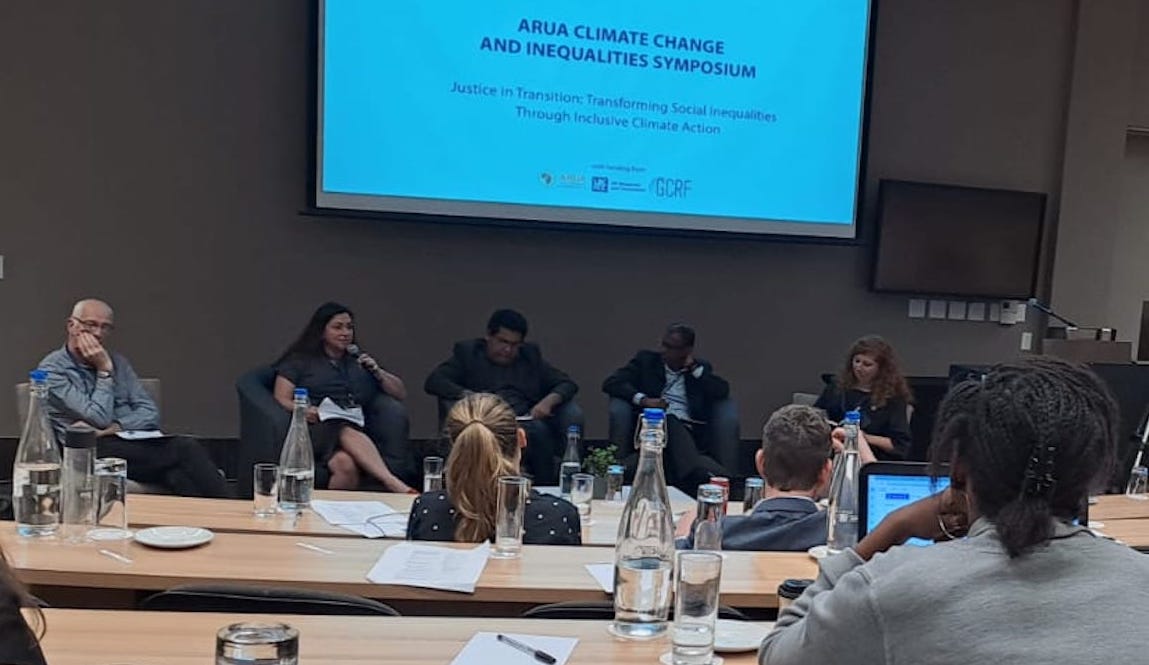Rachel Yavinsky
Senior Policy Advisor

August 3, 2023
Senior Policy Advisor
The ARUA Climate Change and Inequalities Symposium, hosted in March at the University of Cape Town, focused on transforming social inequalities through climate change action. It highlighted timely and critical issues in development—climate change, sustainable livelihoods, multidimensional poverty, and inequality—and the intersections between them.
I was excited to participate both as a trainer and on a panel on climate change, inequality, and development. Joining a forum with a diverse group of speakers pushed me to consider new perspectives on common climate change debates—and also posed some communication challenges. In my work at PRB, I work with researchers in many stages of their careers to transform their research findings into messages and products that maximize impact with target audiences. In this blog, I share the advice I gave my trainees—bright, upcoming researchers from three different countries—to help them convey their research findings clearly and compellingly.
Through ACEIR, PRB supported three early career researchers to present at the symposium. Kacho Amir Khan from the International Institute for Population Sciences in Mumbai shared a poster on climate change and water scarcity in the cold desert of Ladakh, India. Jacqueline Njambi Kibe Kamau from the University of Nairobi in Kenya spoke on policy interventions for inclusive climate governance regimes, including how to reduce gender-based inequalities. And Prosper Turimubumwe from the University of Burundi shared his research on how rural settlers can rebuild their livelihoods after climate shocks.

The awardees, who were selected for the quality of their research and the relevance of their findings to the symposium, also received feedback and coaching on their presentations. In my role as trainer, I shared tips on how to focus their communication and engage their audience. Our work together started before I even left the United States and continued over tea and pasteis de nata in Cape Town. Each of the researchers began with tremendously interesting ideas, and it was exciting to watch their evolution.
Toward the end of our session, we were joined by another early career researcher who had heard about what we were discussing and was interested in receiving feedback on her work. Without enough time for a thorough review, I shared some key points that I felt would be helpful for a researcher hoping to convey her findings to high-level experts in other disciplines clearly, concisely, and with the most impact.
Since the symposium, I have been thinking about the tips I gave the researchers on their presentations and how much of a difference they can make in the clarity of a message. Many of these tips are not taught in graduate school, and some are even contrary to what you might hear on your way to a Ph.D.—but all will help streamline your presentations so that your message stands out:
All the awardees knocked it out of the park; they stayed within their time limits and held the audience’s attention, as evidenced by the many follow-up questions they received and the connections they made with fellow researchers. On the last day of the symposium, one of the discussants even referred to information that Prosper, our awardee from the University of Burundi, had shared. Key conference achievement unlocked!
For more information on the symposium’s key takeaways, check out this ACEIR article How to transform social inequalities through climate action.
